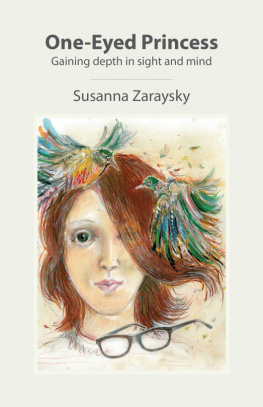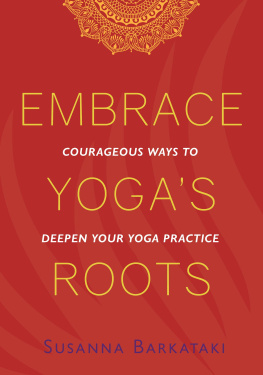
Senses and Citizenships
What does disgust have to do with citizenship? How might pain and pleasure, movement, taste, sound and smell be configured as aspects of national belonging? Senses and Citizenships: Embodying Political Life examines the intersections between sensory phenomena and national and supra-national forms of belonging, introducing the new concept of sensory citizenship. Expanding upon contemporary understandings of the rights and duties of citizens, the volume presents anthropological investigations of the sensory aspects of participation in collectivities such as face-to-face communities, ethnic groups, nations and transnational entities. Rethinking relationships between ideology, aesthetics, affect and bodily experience, the authors reveal the multiple political effects of the senses. The book demonstrates how various elements of political life, including some of the most fundamental aspects of citizenship, rest not only upon our senses, but on their perceived naturalization. Vivid ethnographic examples of sensory citizenship in Europe, the United States, the Pacific, Asia and the Middle East explore themes such as sight in political constructions; smell and ethnic conflict; pain in the constitution of communities; national soundscapes; taste in national identities; movement, memory and emplacement.
Susanna Trnka is senior lecturer in the Department of Anthropology at the University of Auckland.
Christine Dureau is senior lecturer in the Department of Anthropology at the University of Auckland.
Julie Park is professor in the Department of Anthropology at the University of Auckland.
Routledge Studies in Anthropology
1 Student Mobility and Narrative in Europe
The New Strangers
Elizabeth Murphy-Lejeune
2 The Question of the Gift
Essays across Disciplines
Edited by Mark Osteen
3 Decolonising Indigenous Rights
Edited by Adolfo de Oliveira
4 Traveling Spirits
Migrants, Markets and Mobilities
Edited by Gertrud Hwelmeier and Kristine Krause
5 Anthropologists, Indigenous Scholars and the Research Endeavour
Seeking Bridges Towards Mutual Respect
Edited by Joy Hendry and Laara Fitznor
6 Confronting Capital
Critique and Engagement in Anthropology
Edited by Pauline Gardiner Barber, Belinda Leach and Winnie Lem
7 Adolescent Identity
Evolutionary, Cultural and Developmental Perspectives
Edited by Bonnie L. Hewlett
8 The Social Life of Climate Change Models
Anticipating Nature
Edited by Kirsten Hastrup and Martin Skrydstrup
9 Islam, Development, and Urban Women's Reproductive Practices
Cortney Hughes Rinker
10 Senses and Citizenships
Embodying Political Life
Edited by Susanna Trnka, Christine Dureau, and Julie Park
Senses and Citizenships
Embodying Political Life
Edited by Susanna Trnka,
Christine Dureau, and Julie Park
First published 2013
by Routledge
711 Third Avenue, New York, NY 10017
Simultaneously published in the UK
by Routledge
2 Park Square, Milton Park, Abingdon, Oxon OX14 4RN
Routledge is an imprint of the Taylor & Francis Group, an informa business
2013 Taylor & Francis
The right of Susanna Trnka, Christine Dureau, and Julie Park to be identified as the authors of the editorial material, and of the authors for their individual chapters, has been asserted in accordance with sections 77 and 78 of the Copyright, Designs and Patents Act 1988.
All rights reserved. No part of this book may be reprinted or reproduced or utilised in any form or by any electronic, mechanical, or other means, now known or hereafter invented, including photocopying and recording, or in any information storage or retrieval system, without permission in writing from the publishers.
Trademark Notice: Product or corporate names may be trademarks or registered trademarks, and are used only for identification and explanation without intent to infringe.
Library of Congress Cataloging-in-Publication Data
Senses and citizenships : embodying political life / edited by Susanna Trnka, Christine Dureau and Julie Park.
pages cm. (Routledge studies in anthropology; 10)
Includes bibliographical references and index.
1. Citizenship. 2. Senses and sensation. I. Trnka, Susanna.
JF801.S4515 2013
323.6dc23
2012048366
ISBN13: 978-0-415-81933-6 (hbk)
ISBN13: 978-0-203-37465-8 (ebk)
Typeset in Sabon
by IBT Global.
Contents
The editors acknowledge all the contributing authors for their generous engagement throughout the Senses and Citizenships project. We also appreciate the contributions of other participants in the Senses and Citizenships panel at the 2008 ASA, AAS, and ASAA/NZ Conference. Special thanks to our colleagues, Maureen Molloy and Cris Shore, and to our editor, Max Novick, for their invaluable advice and unwavering support. Thank you to John M. Correll for his help with the images. We are also grateful to the Department of Anthropology, The University of Auckland, for funding this project.
Be it flag-waving partisans or mothers birthing the next generation of military conscripts, Olympic athletes competing in the name of their country or volunteers constructing public works, the corporeality of citizenship is everywhere around us. Indeed, it has become a scholarly truism that conceptualizations of the body of the nation are often embedded in the activities, comportments, and experiential realities of the actual bodies of a nation's populace. The fact that citizenship is not just a matter of rights and duties, as defined by the state, but also has a corporeal existence has similarly been well demonstrated. And wherever there are living, sensate bodies, the senses are a naturally arising component of physicaland in this case, political life. Or are they? Are the senses simply an expression of the inescapable corporeality of human political endeavor? Or can there be something inherently socialand more to the point, politicalin how our senses themselves are constituted and, in turn, used in constituting the political?
In this book, we argue that aspects of political life, including some of the most fundamental enactments of citizenship, rest not only upon our senses but on their perceived naturalization. Building upon scholarly interest in various aspects of embodied citizenship, we suggest that the sensorial aspects of citizenship are an essential but as yet underanalyzed facet of political power, collective ideologies, and citizen subjectivities.












